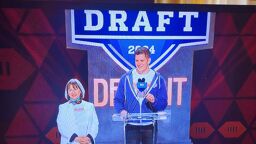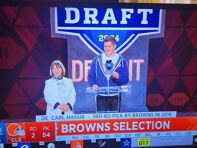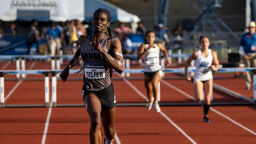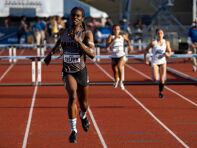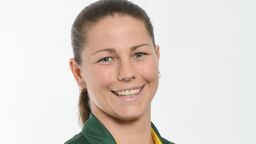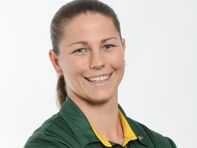When an opponent called pro soccer player Collin Martin an anti-gay slur in the middle of a match, his team walked off the field and forfeited. It was a heartwarming example of allyship and what it means for teammates to support one another.
But at the time, Martin says he was experiencing a “living nightmare.”
In an interview with me this week on “The Sports Kiki” podcast, Martin describes the mixed feelings he experienced in that moment. While it felt great to know his coach and teammates had his back, the forfeit also cost his team, the San Diego Loyal, a chance to make the USL Championship playoffs.
Growing up, Martin was always fearful about his sexuality interfering with his team’s performance. On that night, his longstanding fear became a reality.
“I alluded to it as a living nightmare,” he said. “Growing up as a kid, especially in high school when I thought I was potentially going to have to hide this big fact that I was gay and still try to progress in sport, the last thing I wanted was anyone to know I was gay, and just have my sexuality impact my ability to play.
“In that moment, not only was it impacting me in that someone said something to me, but my team was going to be willing to walk off the field in support of me, and completely take away our chances of making the playoffs.”
The Loyal walked off the field in protest when a player on the Phoenix Rising called Martin a homophobic slur in September 2020. San Diego manager Landon Donovan, one of the greatest American soccer players ever, was especially vocal about his outrage.
“We have to get this out of our game,” he said when confronting Phoenix manager Rick Schantz.
The San Diego Loyal walked off the field in protest Wednesday night, saying a Phoenix Rising player used an anti-gay slur directed at openly-gay midfielder Collin Martin.
— SportsCenter (@SportsCenter) October 1, 2020
Manager Landon Donovan discussed the incident with the referee and Phoenix head coach Rick Schantz. pic.twitter.com/WlOYauQhgV
The Loyal were already on high alert after one of their players was called a racial slur by an opponent a few nights prior. The incident with Martin was their second forfeit in less than a week.
“Obviously, it was an amazing testament of support from my teammates, but in the moment, I don’t know if ‘embarrassed’ is the right word, but I was shocked and it was extremely hard to be the center of attention in that moment,” Martin said.
Martin says he was relieved to find out the team they needed to lose in order to qualify for the playoffs won their game that night. That quelled some of the guilt he was feeling.
Today, Martin says remembers the episode as a “beautiful story” that encapsulates what it means to be part of a team.
“I don’t think there’s a better painted picture of allyship and straight teammates supporting a gay teammate,” he said. “You couldn’t make up a better story or a better idea of what that might look like.”

Now in his third season with the Loyal, Martin knows where his teammates stand on LGBTQ issues. Though he publicly came out in 2018 when he played for the Minnesota United — becoming the second out active gay player in MLS history — Martin says many of his teammates knew he was gay for years.
He frequented gay bars while playing in Washington D.C. and had a boyfriend as well. That lessened Martin’s fear of formally coming out: his sexuality wasn’t a mystery to those around him.
“What’s been really special about San Diego — in large parts Minnesota as well — my teammates all knew I was gay for the most part when I signed with the team,” he said. “From there, they were able to get to know me, and actually ask me questions, and engage with the fact that I’m gay.”
Not every LGBTQ athlete is as lucky. Though out athletes report widespread and deep acceptance from teammates, casual homophobia is still prevalent in locker rooms and among fans.
A recent survey of 3,000 sports fans conducted by BonusFinder.com and LGBT HERO shows that 17 percent of respondents think pro athletes should hide their sexuality orientation and gender identity, and 41 percent believe a players’ sexual orientation isn’t relevant to the game.
But those fans are wrong, Martin says. Being closeted is a taxing burden on someone’s mental health and wellbeing.
Martin says coming out allowed him to play freely and develop stronger bonds with teammates. He couldn’t imagine doing any of that if he were still closeted.
“It’s liberating to come out. When you’re in the closet, you’re lying and coming out is a special thing,” he said. “It’s interesting to see where fans are at. I understand they want athletes to prioritize just performing on the field and maybe assimilating to what that might look like, but I think we have some work to do until we just enjoy our private lives by ourselves.”
“The Sports Kiki” is published every Saturday on Spotify, Apple and Google Podcasts.















